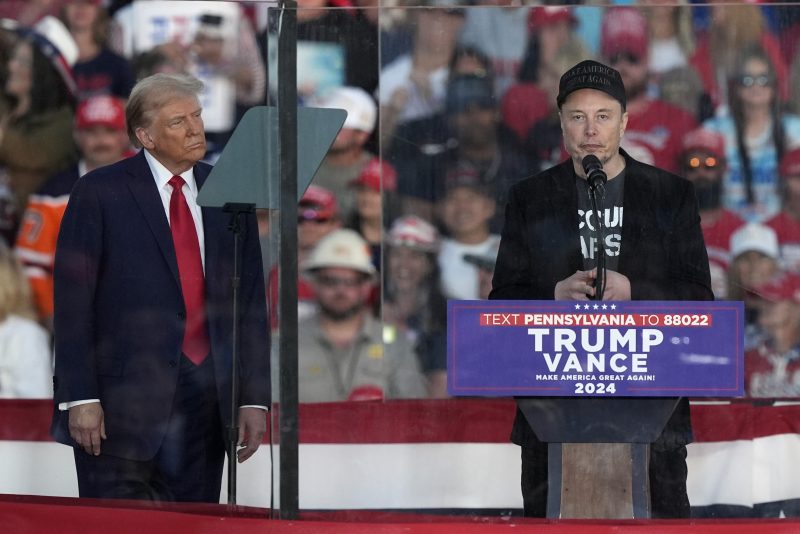Elon Musk’s Political Donation: A Closer Look
Elon Musk, the renowned entrepreneur and innovator, made headlines recently with his substantial $75 million donation to his own America PAC in a bid to support the re-election of Donald Trump. This move has raised eyebrows and sparked discussions regarding the intersection of tech titans and politics, as well as the implications of such a hefty political contribution.
Musk’s donation stands out not only for its significant amount but also for the fact that it comes directly from his personal wealth. As the CEO of multiple successful companies, including Tesla and SpaceX, Musk’s financial resources are vast, and his decision to channel a substantial chunk of it into a political cause further cements his influence in both the business and political realms.
Critics have been quick to point out the potential conflicts of interest that may arise from Musk’s donation. Given his various business interests and the regulatory environment in which his companies operate, some argue that such a sizable contribution could be seen as an attempt to buy political influence or favorable treatment. This raises valid concerns about the influence of big money in politics and the need for greater transparency and accountability in the electoral process.
On the other hand, supporters of Musk’s move argue that as a private citizen, he has every right to support political causes and candidates of his choosing. They point out that Musk’s donation is a reflection of his personal beliefs and a legitimate exercise of his rights in a democratic society. Moreover, they argue that Musk’s track record as an innovator and job creator should be taken into consideration when evaluating his political influence.
The broader implications of Musk’s political donation extend beyond the current election cycle. It underscores the growing trend of tech leaders and billionaires wielding significant influence in politics, often through substantial financial contributions. This trend raises important questions about the role of money in politics, the accountability of elected officials to their constituents, and the potential for undue influence in the democratic process.
As Musk’s donation continues to generate debate and scrutiny, it serves as a reminder of the complex dynamics at play in the intersection of wealth, power, and politics. While some may view his actions with skepticism, others see it as a legitimate exercise of his rights as a private citizen. Ultimately, Musk’s political donation underscores the need for ongoing dialogue and reflection on the role of money in shaping the future of our democracy.

